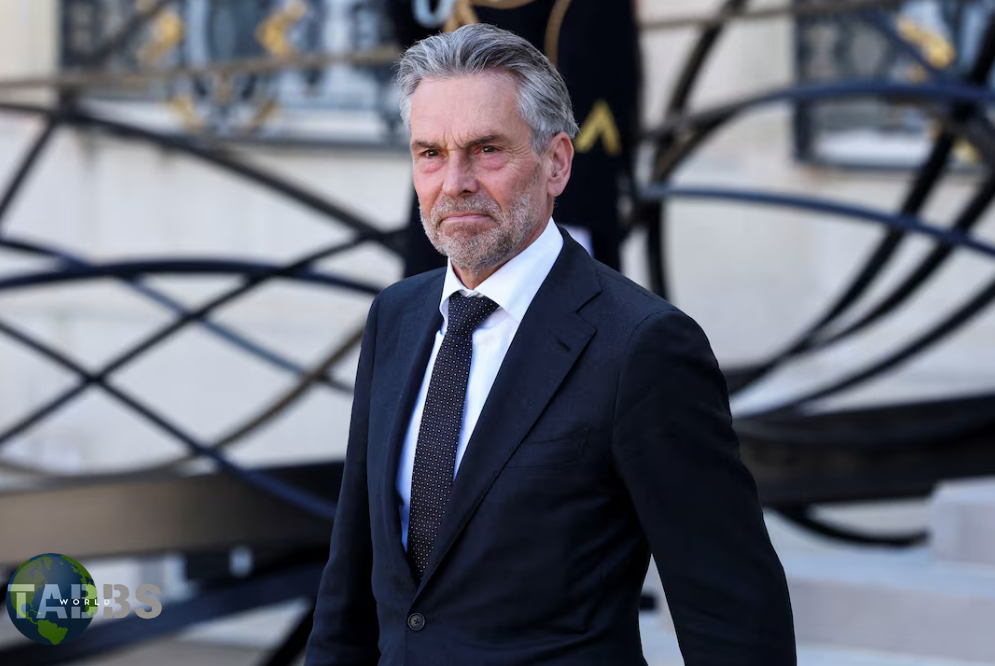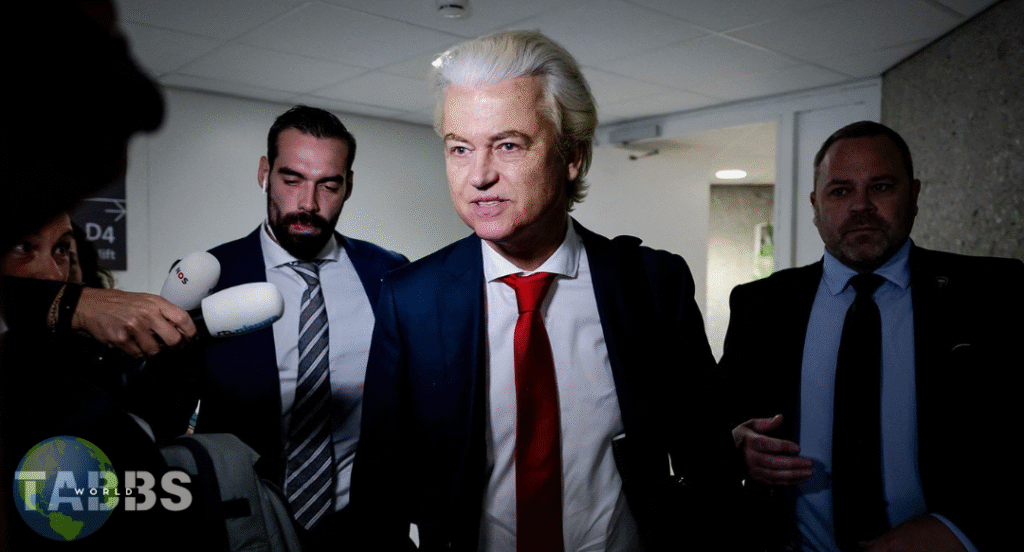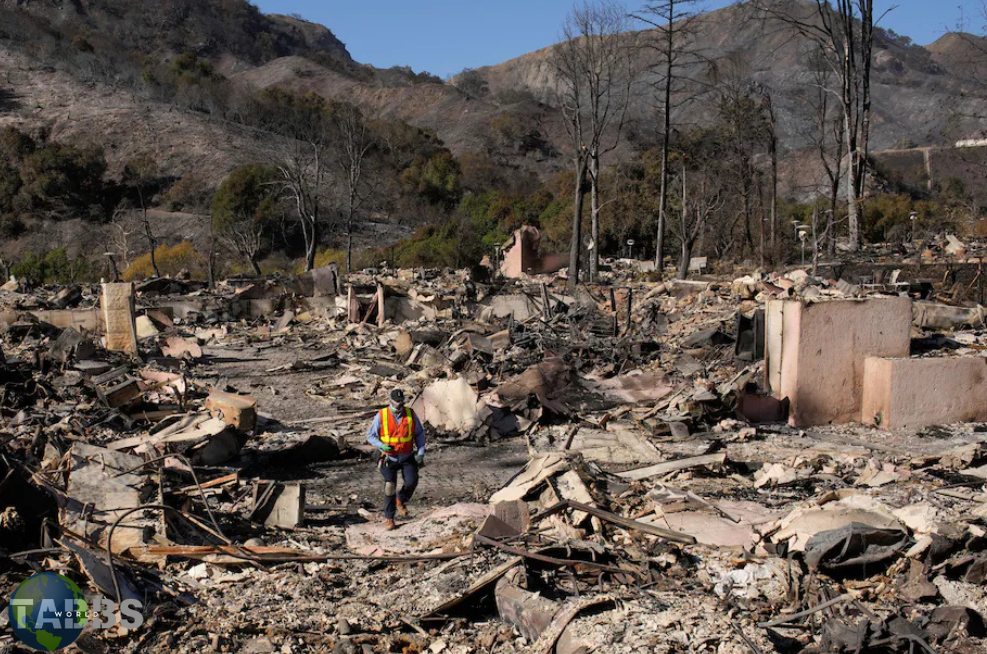n June 3, 2025, the Dutch government faced a dramatic collapse, sending shockwaves through the Netherlands and beyond. The catalyst? Far-right leader Geert Wilders, head of the Party for Freedom (PVV), pulled his party out of the ruling coalition, citing irreconcilable differences over immigration policy. This move toppled the fragile right-wing coalition, led by Prime Minister Dick Schoof, after just 11 months in power. With snap elections looming, here’s a human-friendly breakdown of what happened, why it matters, and what might come next.
The Backstory: A Fragile Coalition:

The coalition, formed in July 2024 after nearly six months of negotiations, was a delicate alliance of four parties: Wilders’ PVV, the liberal-conservative VVD, the agrarian Farmer-Citizen Movement (BBB), and the centrist New Social Contract (NSC). The PVV, riding high after a surprise victory in the November 2023 election where it secured 37 seats in the 150-seat parliament, was the largest party in the coalition. However, Wilders, a polarizing figure known for his anti-immigration and anti-Islam stance, agreed not to take the prime minister role to secure the deal—a compromise that highlighted the coalition’s shaky foundation from the start.
Migration has long been a contentious issue in Dutch politics. The previous government, led by Mark Rutte (now NATO secretary general), also collapsed in 2023 over immigration disputes. This recurring theme underscores how divisive the topic remains. Wilders, often dubbed the “Dutch Trump” for his provocative rhetoric and distinctive hairstyle, has built his career on pushing for stringent immigration policies, and his latest demands proved too much for his coalition partners.
What Sparked the Collapse?
The immediate trigger was Wilders’ ultimatum: he demanded that his coalition partners fully endorse a 10-point plan to drastically curb immigration. This plan included extreme measures like closing borders to asylum seekers, halting family reunification, deploying the army to guard land borders, and even deporting dual nationals convicted of crimes. Political and legal experts criticized these proposals as unworkable or outright illegal, and the other coalition parties—VVD, BBB, and NSC—balked at signing on.
On June 3, after a brief meeting of party leaders, Wilders announced the PVV’s exit, stating on X, “No signature for our asylum plans. PVV leaves the coalition.” All PVV ministers resigned, and Prime Minister Schoof followed suit, offering his resignation to King Willem-Alexander while agreeing to lead a caretaker government until new elections. The move was met with frustration and accusations of irresponsibility from coalition partners, with VVD leader Dilan Yesilgoz arguing that Wilders prioritized his own political agenda over the country’s stability, especially amid global challenges like the war in Ukraine.
Why Did Wilders Pull the Plug?
Wilders’ decision appears strategic. Some analysts suggest he engineered the collapse to capitalize on his party’s platform ahead of new elections, especially as recent polls show declining support for the PVV. By exiting the coalition, Wilders can distance himself from the government’s struggles and rally his base with his hardline anti-immigration stance. Critics, including coalition partners, argue that many of his demands were already aligned with existing coalition policies, suggesting the move was less about policy and more about political maneuvering.
The timing is notable. The Government Netherlands is set to host a NATO summit on June 24-25, 2025, and faces pressure to meet new defense spending targets. A caretaker government, limited in its ability to make major decisions, could complicate these commitments. Opposition leaders, like Frans Timmermans of the Labour/Green Left alliance, argue that early elections are the only path to a stable government, but forming a new coalition in the Netherlands’ fragmented political landscape could take months.
What’s Next for the Netherlands?

The collapse sets the stage for snap elections, likely within the next few months, given the Netherlands’ history of lengthy coalition talks. In the meantime, Schoof’s caretaker government will handle day-to-day affairs, but its limited authority could delay critical decisions on issues like defense spending and economic policy. The Dutch political system, where no single party can dominate due to its proportional representation, means Wilders’ PVV will need allies to govern if it performs well in the upcoming vote. The BBB has signaled potential support, but the VVD’s backing is uncertain, and the NSC’s popularity has waned since its leader, Pieter Omtzigt, stepped down.
Wilders’ move also reflects broader European trends, where far-right parties are gaining traction. Recent elections in Poland and Romania show mixed outcomes for nationalist movements, but Wilders’ PVV remains a potent force in Dutch politics. Whether he can translate his electoral success into a stronger coalition—or even the prime minister’s seat—remains to be seen.
The Human Impact:
For everyday Dutch citizens, this political upheaval brings uncertainty. Immigration remains a polarizing issue, with some supporting Wilders’ hardline stance and others decrying it as divisive or impractical. The prospect of another election cycle, coupled with a caretaker government, could delay policies affecting jobs, healthcare, and international commitments. Meanwhile, Wilders’ rhetoric continues to stir debate, with critics warning that his approach risks further polarizing society.
As one X user put it, “Populism is great at winning elections… and terrible at running countries.” Whether you agree or not, the Netherlands is now navigating uncharted waters, and the outcome of the next election could reshape its political landscape for years to come.
Stay Informed:
The Dutch government’s collapse is a developing story with implications for both the Netherlands and Europe. For the latest updates, check trusted news sources or follow discussions on platforms like X. What do you think about Wilders’ decision and its impact? Share your thoughts below!



